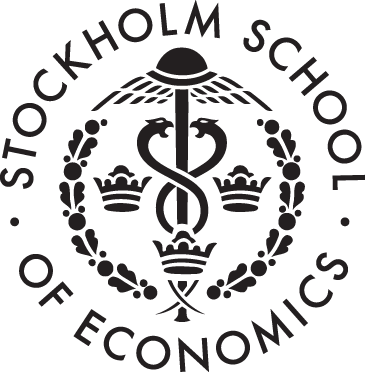Pressmeddelande -
How do people behave when game theory does not yield precise predictions?
Mark Bernard at the Stockholm School of Economics recently defended his thesis on game theory, i.e. the formal analysis of strategic interaction. Mark’s two main experimental papers investigate how people actually behave in situations where game theory does not yield precise predictions.
The core concept of game theory is that of Nash equilibrium, which describes a situation in which, given everyone else’s behavior, I cannot improve my outcome by changing my own behavior, and the same holds for all other parties involved.
The first of his two new experimental studies concerns a bargaining problem reminiscent of worker-firm interaction in real-world labor markets.
“Our question is how market frictions arising from institutional factors and market conditions affect efficiency and surplus sharing between workers and firms. We find that while efficiency is significantly lower the higher the amount of frictions, division of surplus is mostly equitable in functioning matches in all scenarios”, said Mark Bernard.
The second new study analyzes a coordination problem with heterogeneous agents in which mis-coordination is very costly. An example is the question of funding the EFSF and ESM, with the aim of erecting a “firewall” for troubled eurozone countries.
“We ask to which extent heterogeneity with respect to observable characteristics, such as wealth, causes coordination frictions, and to which extent these frictions can be attributed to proper normative disagreement, or to a multiplicity of focal points and resulting strategic uncertainty. We find that the extent of frictions is substantial but mostly due to strategic uncertainty. Intrinsic preferences seem to play a relatively minor role even though the revealed focal points reflect basic fairness principles”, said Mark Bernard.
Apart from the two experimental studies, the thesis contains two theoretical papers on specialized topics in game theory.
For further information, please contact:
Mark Bernard, mark.bernard@hhs.se, 0735-52 55 88
More about the thesis “Conflict, Cooperation and Coordination – Essays in Game Theory and Experimental Economics” by Mark Bernard.
Relaterade länkar
Ämnen
- Ekonomi, finans
Kategorier
- handelshögskolan i stockholm
- forskning
- avhandling
Regioner
- Stockholm
Handelshögskolan i Stockholm (Stockholm School of Economics, SSE) är en av de ledande handelshögskolorna i Europa. Handelshögskolan har en stark internationell position med representation i Lettland och Ryssland och erbjuder kandidat, master- och MBA-program, liksom forskarutbildning och executive education. Dessutom bedrivs världsledande forskning inom områden som national-, finansiell- och företagsekonomi. Handelshögskolan är certifierad av EQUIS (European Quality Improvement System), som garanterar att undervisning såväl som forskning håller högsta internationella klass, och är också Sveriges representant i CEMS (The Global Alliance in Management Education).
Stockholm School of Economics . Sveavägen 65 . Box 6501. SE-113 83 Stockholm . Sweden . Phone +46 8 736 90 00 . www.hhs.se
